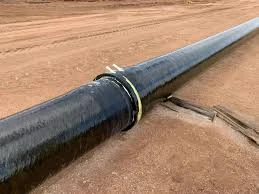
-
 Afrikaans
Afrikaans -
 Albanian
Albanian -
 Amharic
Amharic -
 Arabic
Arabic -
 Armenian
Armenian -
 Azerbaijani
Azerbaijani -
 Basque
Basque -
 Belarusian
Belarusian -
 Bengali
Bengali -
 Bosnian
Bosnian -
 Bulgarian
Bulgarian -
 Catalan
Catalan -
 Cebuano
Cebuano -
 China
China -
 China (Taiwan)
China (Taiwan) -
 Corsican
Corsican -
 Croatian
Croatian -
 Czech
Czech -
 Danish
Danish -
 Dutch
Dutch -
 English
English -
 Esperanto
Esperanto -
 Estonian
Estonian -
 Finnish
Finnish -
 French
French -
 Frisian
Frisian -
 Galician
Galician -
 Georgian
Georgian -
 German
German -
 Greek
Greek -
 Gujarati
Gujarati -
 Haitian Creole
Haitian Creole -
 hausa
hausa -
 hawaiian
hawaiian -
 Hebrew
Hebrew -
 Hindi
Hindi -
 Miao
Miao -
 Hungarian
Hungarian -
 Icelandic
Icelandic -
 igbo
igbo -
 Indonesian
Indonesian -
 irish
irish -
 Italian
Italian -
 Japanese
Japanese -
 Javanese
Javanese -
 Kannada
Kannada -
 kazakh
kazakh -
 Khmer
Khmer -
 Rwandese
Rwandese -
 Korean
Korean -
 Kurdish
Kurdish -
 Kyrgyz
Kyrgyz -
 Lao
Lao -
 Latin
Latin -
 Latvian
Latvian -
 Lithuanian
Lithuanian -
 Luxembourgish
Luxembourgish -
 Macedonian
Macedonian -
 Malgashi
Malgashi -
 Malay
Malay -
 Malayalam
Malayalam -
 Maltese
Maltese -
 Maori
Maori -
 Marathi
Marathi -
 Mongolian
Mongolian -
 Myanmar
Myanmar -
 Nepali
Nepali -
 Norwegian
Norwegian -
 Norwegian
Norwegian -
 Occitan
Occitan -
 Pashto
Pashto -
 Persian
Persian -
 Polish
Polish -
 Portuguese
Portuguese -
 Punjabi
Punjabi -
 Romanian
Romanian -
 Russian
Russian -
 Samoan
Samoan -
 Scottish Gaelic
Scottish Gaelic -
 Serbian
Serbian -
 Sesotho
Sesotho -
 Shona
Shona -
 Sindhi
Sindhi -
 Sinhala
Sinhala -
 Slovak
Slovak -
 Slovenian
Slovenian -
 Somali
Somali -
 Spanish
Spanish -
 Sundanese
Sundanese -
 Swahili
Swahili -
 Swedish
Swedish -
 Tagalog
Tagalog -
 Tajik
Tajik -
 Tamil
Tamil -
 Tatar
Tatar -
 Telugu
Telugu -
 Thai
Thai -
 Turkish
Turkish -
 Turkmen
Turkmen -
 Ukrainian
Ukrainian -
 Urdu
Urdu -
 Uighur
Uighur -
 Uzbek
Uzbek -
 Vietnamese
Vietnamese -
 Welsh
Welsh -
 Bantu
Bantu -
 Yiddish
Yiddish -
 Yoruba
Yoruba -
 Zulu
Zulu
Exploring Alternatives to Fiberglass Sewer Pipes for Durable Waste Management Solutions
Alternative Solutions for Sewer Pipes The Case for Fiberglass
As urban infrastructure continues to age, the demand for durable, resilient, and cost-effective sewer pipe materials has become more pressing. Traditionally, materials like clay, concrete, and PVC have dominated the market. However, an alternative that is gaining popularity is fiberglass-reinforced polymer (FRP). This innovative material not only offers distinct advantages over conventional options but also addresses many of the challenges cities face today in waste management and sewerage systems.
Understanding Fiberglass Sewer Pipes
Fiberglass sewer pipes are made by layering fiberglass and resin to create a robust yet lightweight pipe. This manufacturing process provides high strength, resistance to corrosion, and the ability to withstand harsh environmental conditions. The seamless construction of fiberglass pipes minimizes the risk of leaks, a common problem with traditional sewer systems.
Advantages of Fiberglass Sewer Pipes
1. Corrosion Resistance One of the most compelling reasons to consider fiberglass pipes is their exceptional resistance to corrosion. Traditional materials like concrete and metal are often susceptible to chemical reactions with wastewater and environmental conditions, leading to deterioration over time. In contrast, fiberglass is inherently resistant to many corrosive substances, making it an ideal choice for sewer applications.
2. Longevity Fiberglass pipes have a long service life, often exceeding 50 years with proper maintenance. This durability not only reduces the need for frequent replacements but also lowers overall life-cycle costs. In a time when many municipalities are grappling with budget constraints, investing in long-lasting materials can yield significant savings over time.
3. Lightweight and Easy to Install The lightweight nature of fiberglass makes it easier to handle during installation. This can lead to reduced labor costs and quicker project timelines. Additionally, because they are easier to transport and maneuver, less heavy machinery is often required, minimizing the environmental impact associated with installation.
4. Flexibility Fiberglass pipes offer flexibility that enables them to withstand ground movements or shifts, which is particularly advantageous in areas prone to earthquakes or subsidence. This capability reduces the risk of cracks or ruptures, allowing for more reliable sewage transport.
fiberglass sewer pipe alternative.

5. Smooth Interior Surface The smoothness of fiberglass pipe interiors helps to minimize friction and allows for better flow dynamics. This can lead to reduced energy costs associated with pumping wastewater and a lower risk of build-ups that can cause blockages and backups.
Environmental Considerations
Using fiberglass as an alternative sewer pipe material can also have positive environmental implications. The longevity and low maintenance requirements of fiberglass means fewer resources are consumed over time for repairs and replacements. Moreover, the reduced possibility of leaks and breaks helps prevent contamination of surrounding soil and water systems, supporting broader ecological health.
Potential Challenges
While fiberglass sewer pipes come with numerous advantages, it is not without challenges. For instance, the initial cost can be higher than traditional materials, which may deter some municipalities. However, considering the long-term savings and reduced maintenance costs, many experts argue that the investment in fiberglass pays off in the long run.
Familiarity with fiberglass is also less common compared to more traditional materials. This can result in a steeper learning curve for installation and maintenance, necessitating training for workers accustomed to established materials.
Conclusion
As towns and cities continue to evolve and adapt to the challenges of modern waste management, exploring alternative materials like fiberglass for sewer pipe systems makes considerable sense. With its multitude of benefits including corrosion resistance, longevity, and environmental viability, fiberglass stands out as a compelling option that aligns with the need for sustainable development.
As we look toward the future of infrastructure, the use of fiberglass sewer pipes can play a pivotal role in ensuring reliable, efficient, and cost-effective sewage systems. Therefore, it is imperative for urban planners, engineers, and decision-makers to consider this innovative alternative as they plan for a sustainable and resilient future.









